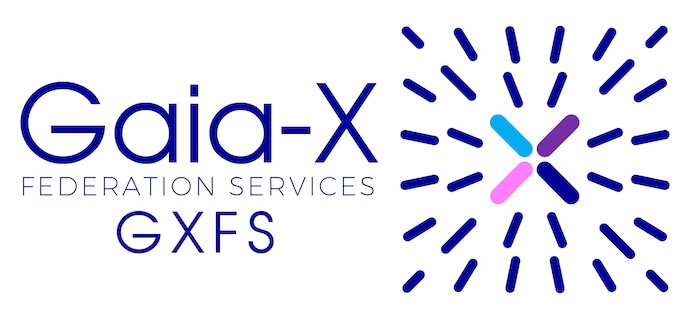Developing digital added value via the cloud so that technology also comes more naturally to SMEs: How the cloud is driving the digitalization of industry and society. And what video calls and Gaia-X have in common – at Cloud Expo Europe Frankfurt, the Internet and cloud computing industry discussed trust in the digital space.
These days, working without the cloud makes no sense – even for SMEs. “Whether edge, mesh or public, cloud solutions give SME business models breathing space,” said Stefan Igel, COO at Stackable. Why the cloud is taking off: “Businesses have changed,” said Marc Sundermann, CEO & Founder at CLOUDETEER. “While the no-cloud strategy used to be the norm, today the norm is the cloud strategy.” Whether IaaS, PaaS or SaaS – at Cloud Expo Europe Frankfurt on 11 and 12 May, experts discussed how technology can help SMEs to breathe.
“Whereas providers used to have to persuade their clientele to transition, SMEs now themselves recognize the advantages,” Sundermann said. The reason for the rising demand brings about both contentment and concern. “It’s not just the chip shortage that challenges the IT industry,” said Julian Hansert, Co-founder at Kubermatic, adding “There’s a shortage of skilled workers everywhere in the cloud world.” This is a problem that needs to be solved. “Ultimately, SMEs want to get more out of their data and processes than was previously possible in their own server room,” said Peter Koller, Senior Project Manager Cloud at EuroCloud Germany.
System integrators and cloud: Cooperation with cloud natives as a solution
Tapping into digital added value via the cloud not only puts traditional SMEs to the test, but also the channel: System integrators have been regarded as the most important contacts for IT in the heart of the German economy. “But even when it comes down to simple questions about AWS, Azure & Co., they often can’t come up with the answers,” according to Dr. Nils Kaufmann, Head of EuroCloud Native (ECN). Cooperation with cloud native service providers can be a solution.
Germany’s ECN has been bringing cloud native providers together since 2020, including startups and enterprises like gridscale: “We support SMEs with IaaS and PaaS solutions that customers can manage at the click of a button,” said Frank Gross, Director of Freshness & Sales at gridscale. What a company can elegantly manage on its own, however, also requires more personal responsibility. “Cloud native technologies are challenging traditional departmental structures,” said Daniel Quilitzsch, IT and software architect at Bechtle Clouds. Since 2017, the service provider has been cultivating, incubating and marketing the cloud expertise of the Bechtle system integrator, which was founded in 1984. While this is a path that others still have ahead of them, the Channel2Cloud Initiative of EuroCloud Germany supports them in the transformation.
Cloud becoming increasingly commonplace for SMEs, thanks to Gaia-X
Gaia-X sets out to make the cloud simpler and increasingly commonplace. The eco – Association of the Internet Industry is working on the Gaia-X Federation Services for the common data infrastructure of the future. “Europe has always been a spearhead in data protection and data security,” stated Patricia Florissi, Technical Director, Office of the CTO at Google Cloud. “The world now expects the same from the initiative.” The common denominator: “Digital sovereignty,” said Stephan Ilaender, CTO at PlusServer, “European values and standards are the link to interconnect SMEs in a system of data ecosystems.” These are ecosystems in which everyone can make sovereign decisions about their data. “Every country claims to protect data” said Rainer Sträter, Head of Global Platform Hosting at IONOS. “But they all have different understandings of the concept.” What that can mean in practical terms: “Anyone who books a cloud service today has to wade through T&Cs,” said Pierre Gronlier, CTO at Gaia-X. “Those who would like to compare and evaluate services are quickly confronted with limitations.” The standardized data infrastructure will solve this transparently: Like components, services should be able to be slotted together in an interoperable and modular manner – and should be just as easy to compare.
Digitalization and data processing: Gaia-X sets rules of the game for providers
Why it is imperative for the Gaia-X initiative to succeed: “The digitalization of society will not succeed without a digitalization of the industry,” said Ernst Stöckl-Pukall, Head of the “Digitalization, Industry 4.0” unit at the BMWK. Digital sovereignty can only work if we stand shoulder to shoulder: “Gaia-X has to balance administrative and industry interests,” said Holger Lehmann, Press Spokesperson for the ITZBund. Why this is necessary: “No matter whether it’s to do with blood counts or machine running times, every data processing operation requires rules of the game,” asserted Emma Wehrwein, Project Manager at eco. “Gaia-X creates a sovereign, flexible and standardized set of rules in this regard.” After all, the initiative also exists in Europe precisely because “the landscape of providers who already process data sovereignly is flourishing here,” said Marcus Busch, Managing Director at Leaseweb Germany.
Gaia-X: True performance too often still overlooked
Whether it’s to do with trust, identity, or protection and security: “Gaia-X’s true performance is often overlooked,” said Jutta Juliane Meier. The founder and CEO of Identity Valley Research spelt out a key cause of this oversight: “During the Covid-19 pandemic, we all experienced firsthand how difficult it is to build trust over video calls.” Gaia-X is no different: “The initiative develops technological solutions to build more trust in the digital space.”
Author: Nils Klute, Project and Communication Manager, EuroCloud Germany
